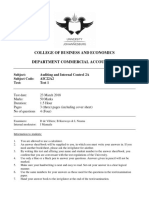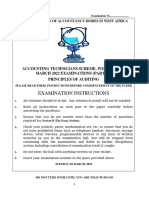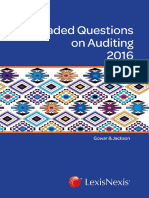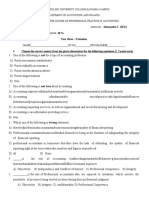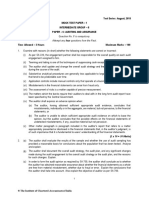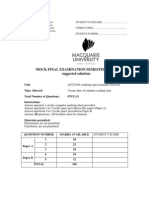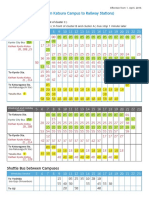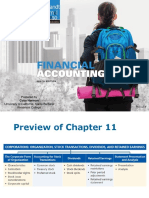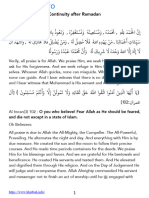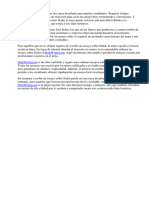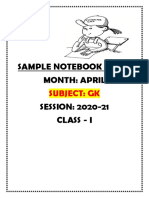0% found this document useful (0 votes)
14 views5 pagesQuestion Paper
The document outlines the details for Test 1 in the Auditing and Internal Control course, including the test date, marks, duration, and structure. It specifies the rules for students regarding the use of calculators, answer sheets, and writing instruments, as well as the expectations for handwriting and answer organization. The test consists of multiple-choice questions, true/false statements, and scenario-based questions related to auditing principles and professional conduct.
Uploaded by
christophermatiki4Copyright
© © All Rights Reserved
We take content rights seriously. If you suspect this is your content, claim it here.
Available Formats
Download as PDF, TXT or read online on Scribd
0% found this document useful (0 votes)
14 views5 pagesQuestion Paper
The document outlines the details for Test 1 in the Auditing and Internal Control course, including the test date, marks, duration, and structure. It specifies the rules for students regarding the use of calculators, answer sheets, and writing instruments, as well as the expectations for handwriting and answer organization. The test consists of multiple-choice questions, true/false statements, and scenario-based questions related to auditing principles and professional conduct.
Uploaded by
christophermatiki4Copyright
© © All Rights Reserved
We take content rights seriously. If you suspect this is your content, claim it here.
Available Formats
Download as PDF, TXT or read online on Scribd
/ 5
